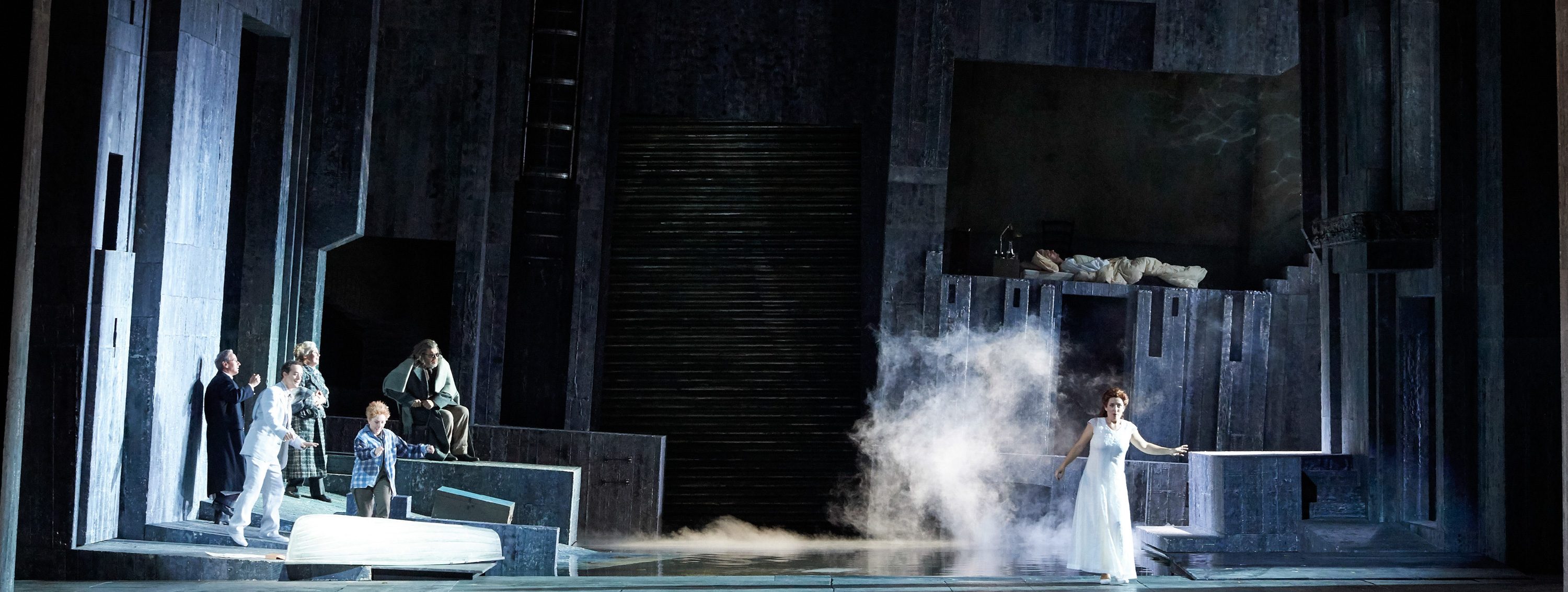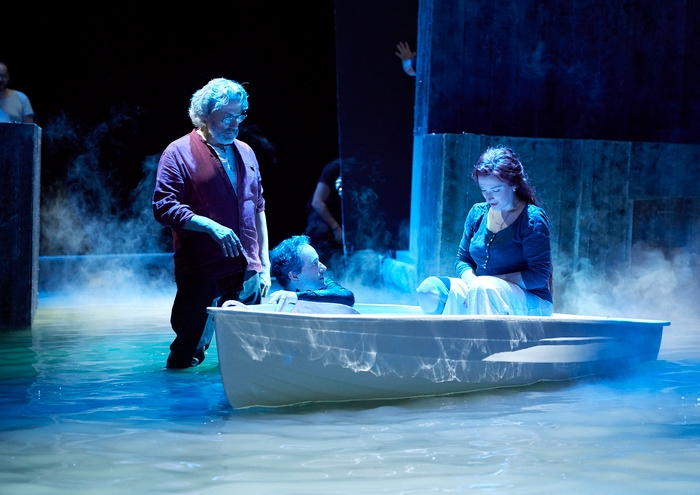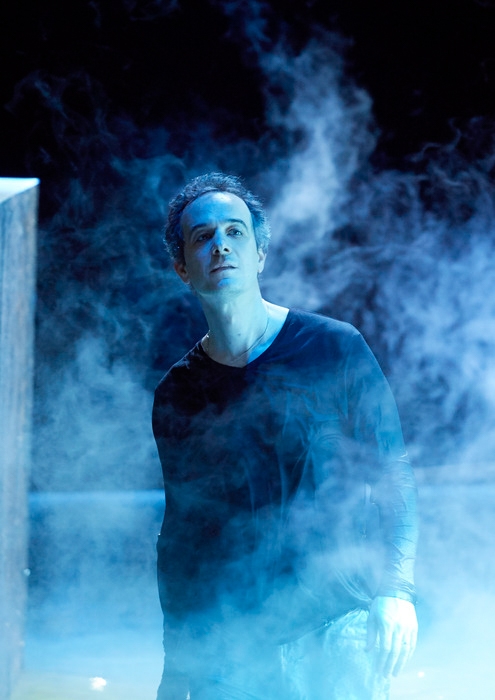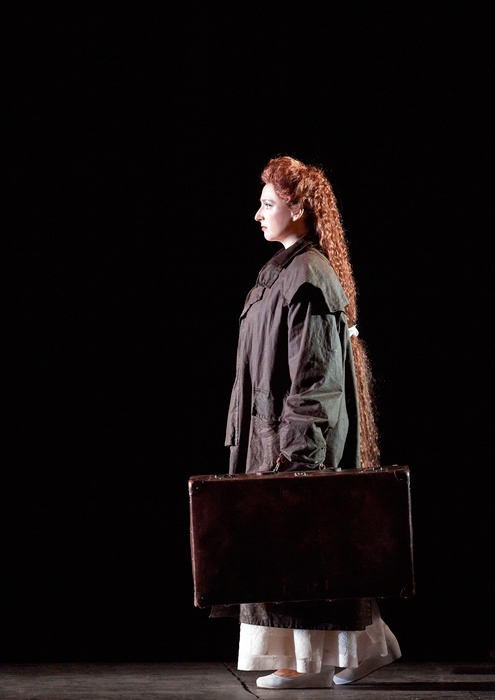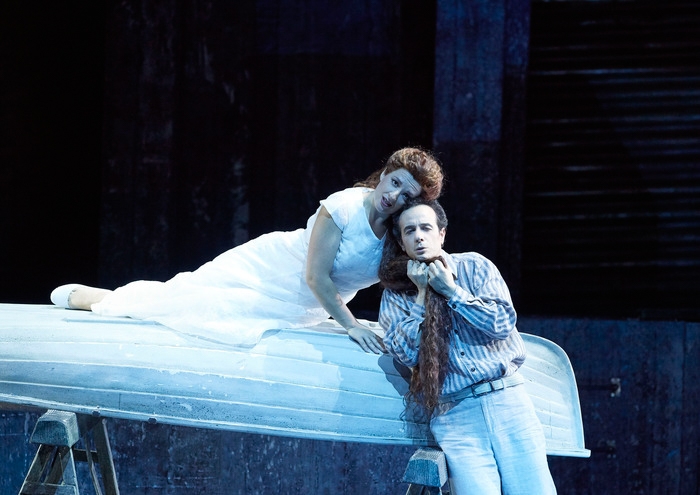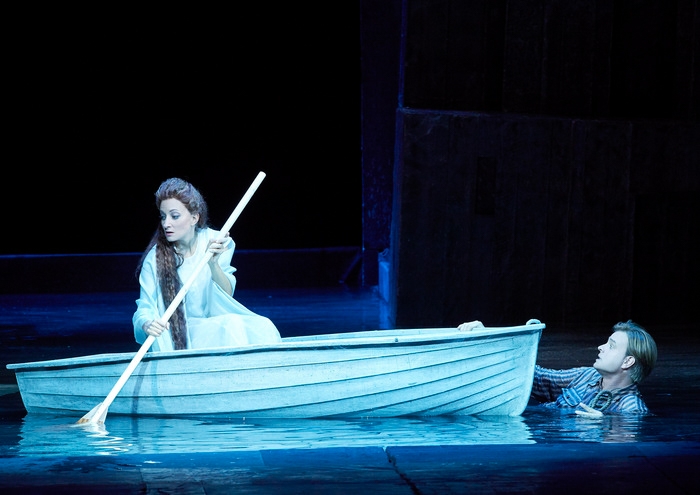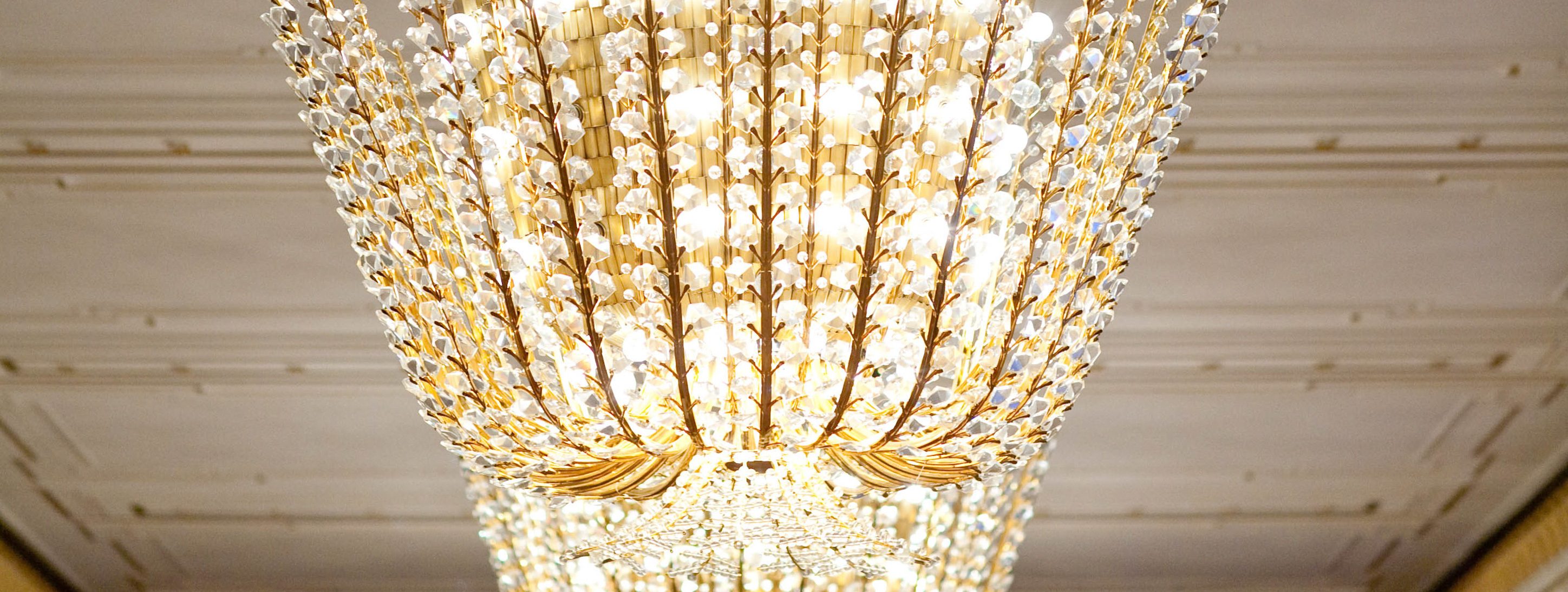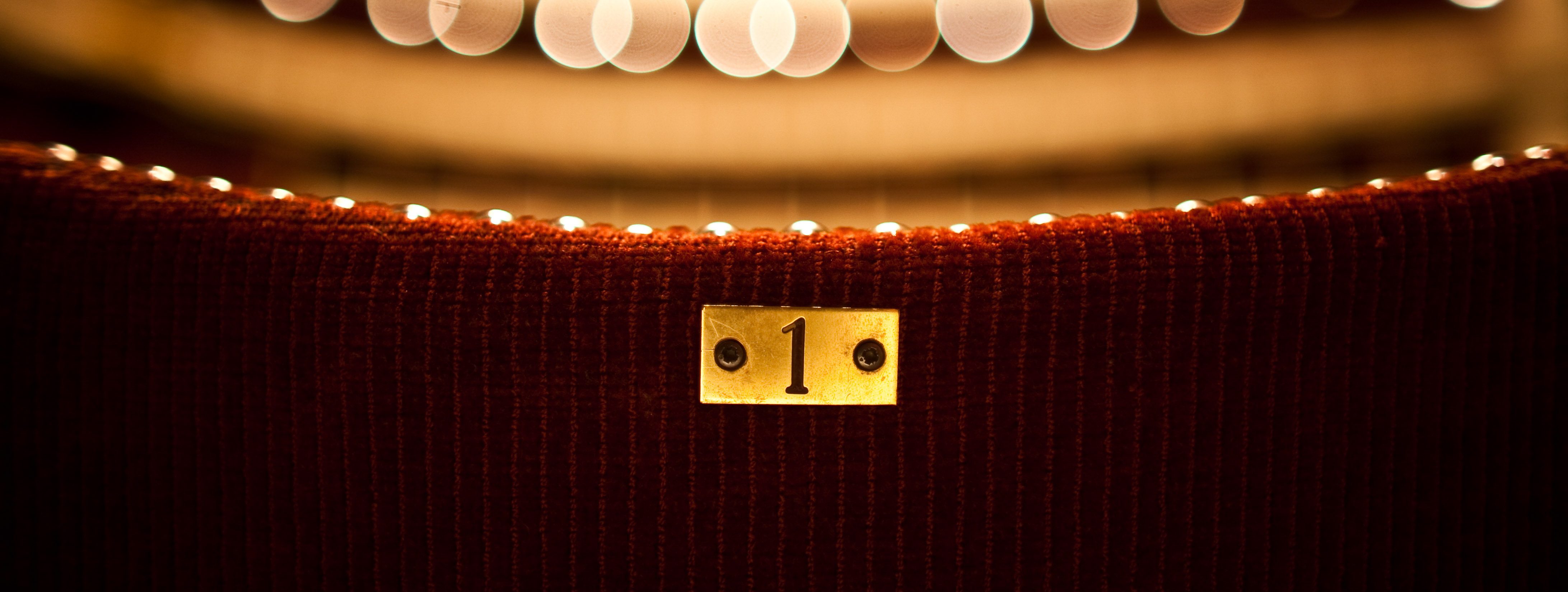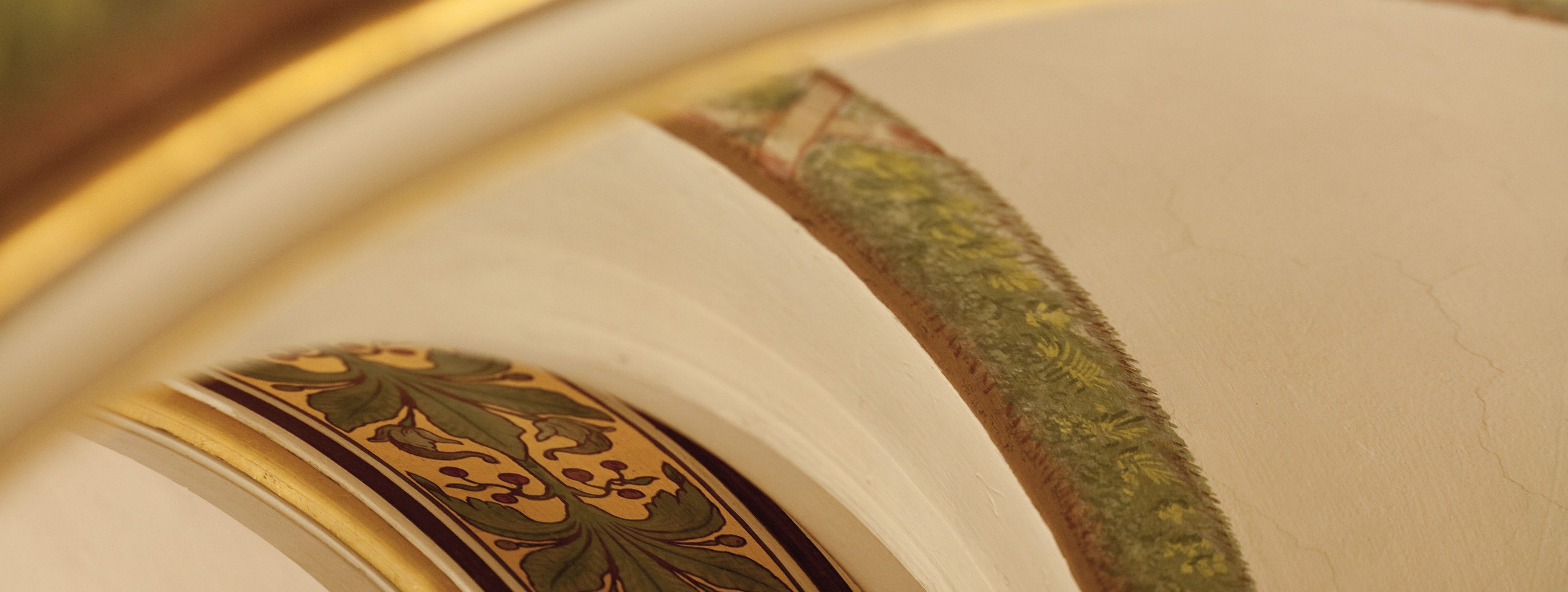About the Production
The fairytale kingdom of Allemonde - a land of oppressive darkness - is ruled by the aged King Arkel.
His family includes his daughter Geneviève and his grandsons, the half-brothers Golaud and Pelléas. One day, Golaud finds a mysterious young woman by the water. The beautiful Mélisande. He takes her home and marries her. But Pelléas also feels strangely attracted to her and seeks her out more and more. Finally, Mélisande also confesses her love for him. However, their escape together is prevented by the jealous Golaud: He kills Pelléas and seriously injures his pregnant wife. After the birth of their child - a daughter - Mélisande dies. She leaves the desperate Golaud in the dark about the nature of her relationship with Pelléas until the end.
Pelléas et
Mélisande
Storyline
Golaud has lost his way. He meets a strange woman by the water. The deeply distraught woman initially refuses any help and only hesitantly reveals her name: Mélisande. A crown in the water is a reminder of her past. Golaud wants to get her out, but Mélisande threatens to kill herself. When Golaud confesses to her that he also feels lost, she agrees to accompany him.
Six months later in Allemonde. Pelléas has received a letter from his half-brother Golaud informing him that he has married Mélisande. If the family does not accept this, he will not return to Allemonde. Golaud fears that his grandfather, the aged Arkel, will not approve of this marriage as he has other plans for his grandson. Geneviève, the mother of Pelléas and Golaud, now reads this letter to the half-blind patriarch. He reluctantly agrees. Pelléas wants to leave Allemonde to answer his dying friend's call for help. As Pelléas' father is also ill, Arkel forbids him to go.
Pelléas leads Mélisande to a spring that once possessed miraculous powers and asks her about her relationship with Golaud. Mélisande evades his questions with a game. Her wedding ring falls into the deep water. Mélisande is disturbed by the loss, but Pelléas advises her to tell Golaud the truth.
At the same time, Golaud has suffered an accident. Mélisande nurses him and tells him how unhappy she is in Allemonde. Golaud thinks her unhappiness is a side effect of her pregnancy. When he takes her hands in consolation, he discovers that the ring is missing. Mélisande lies to him that she lost the ring in a cave while looking for shells for little Yniold, Golaud's son from his first marriage. Golaud forces her to look for the ring that very night, and Pelléas is to accompany her.
Pelléas leads Mélisande into a grotto so that she can later describe the search for the ring to Golaud. When the two of them meet old needy people there, victims of a famine, Mélisande urges them to turn back.
Mélisande is daydreaming with a song. Pelléas comes to say goodbye to her. Mélisande asks him not to leave yet. Pelléas begins an initially innocent game with her hair and Mélisande lets him. When Pelléas becomes passionately entangled in her hair, Golaud surprises them both and rebukes them for their "childishness".
Golaud leads Pelléas to the cisterns of death. Shuddering, Pelléas flees the eerie place.
Having escaped the darkness, Pelléas encounters Mélisande again. Golaud warns him again to avoid Mélisande in future. Driven by jealousy, Golaud tries to interrogate his young son Yniold about Pelléas and Mélisande's relationship. He wants to force the boy to spy on Mélisande and Pelléas.
Pelléas tells Mélisande that his father is finally well again. He has implored him to leave immediately. The two arrange to meet one last time. Arkel is happy about Pelléas' father's recovery and hopes that a happier time will now dawn for the heavily pregnant Mélisande as well as for the whole family. Envious, Golaud humiliates Mélisande and mistreats her until Arkel tries to bring him to his senses.
Debussy made water a characteristic feature of Pelléas et Mélisande. At the same time, all the characters are portrayed as being internally enclosed, lonely and isolated. Director and set designer Marco Arturo Marelli responded to this with a stage space reminiscent of a bunker flooded with water, a secluded retreat full of diffuse depth that reflects all the shades, refractions and reflections of Debussy's musical language. But there is hope for the light, hope for a new tomorrow. A utopian horizon towards which Mélisande drifts in the end.
Claude Debussy's only completed opera is considered a solitaire in opera history that cannot be assigned to any specific tradition. Beneath the deceptive surface, from the first bar of the music, a second, almost bottomless, inexplicable dimension shimmers through which the symbolist piece gains its deeper meaning. The music is very closely tied to the peculiarities of the French language and displays an extraordinary unity of word and sound. The orchestra captivates with its refined colourfulness, the tonal language is restrained and at the same time full of inner and internalized tensions and passions. At the same time, according to the conductor, there is a kind of purity in the opera that seems to put the listener in a state of suspension, far outside the real world.
The opera, which premiered in Paris in 1902, is based on Maurice Maeterlinck's play of the same name - an essential work of symbolism. Accordingly, the setting also thrives on forebodings, strange coincidences, allusions and a dramaturgy that is only partially oriented towards a logical plot sequence. Roughly speaking, Pelléas et Mélisande can be seen as a parable, a love triangle.
But the play wants more. All the characters are drawn to the mysterious and inexplicable world of water from which Mélisande seems to have sprung. They are all trying to get to the place where the key to life lies, deeply hidden in the unfathomability of the water. But access to this secret seems to be denied to mortals. Although Pelléas et Mélisande is regularly staged around the world, this treasure is still considered an insider tip by connoisseurs.
